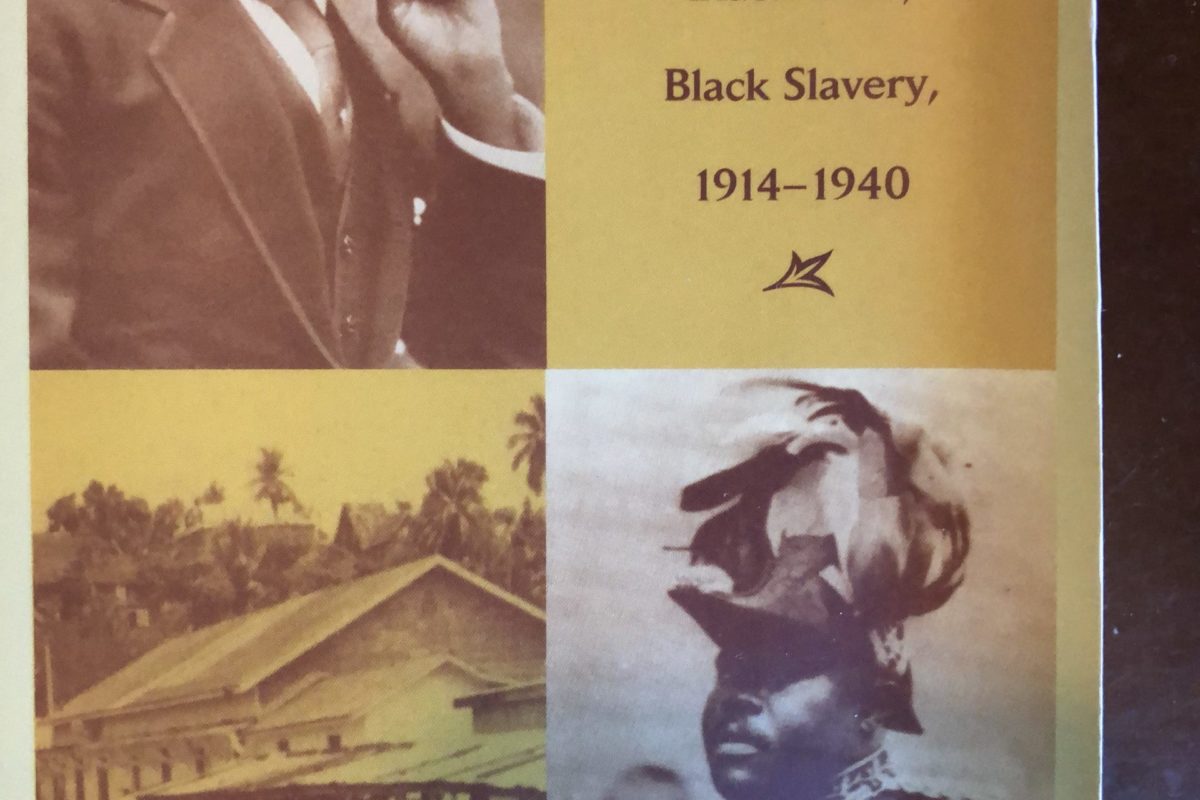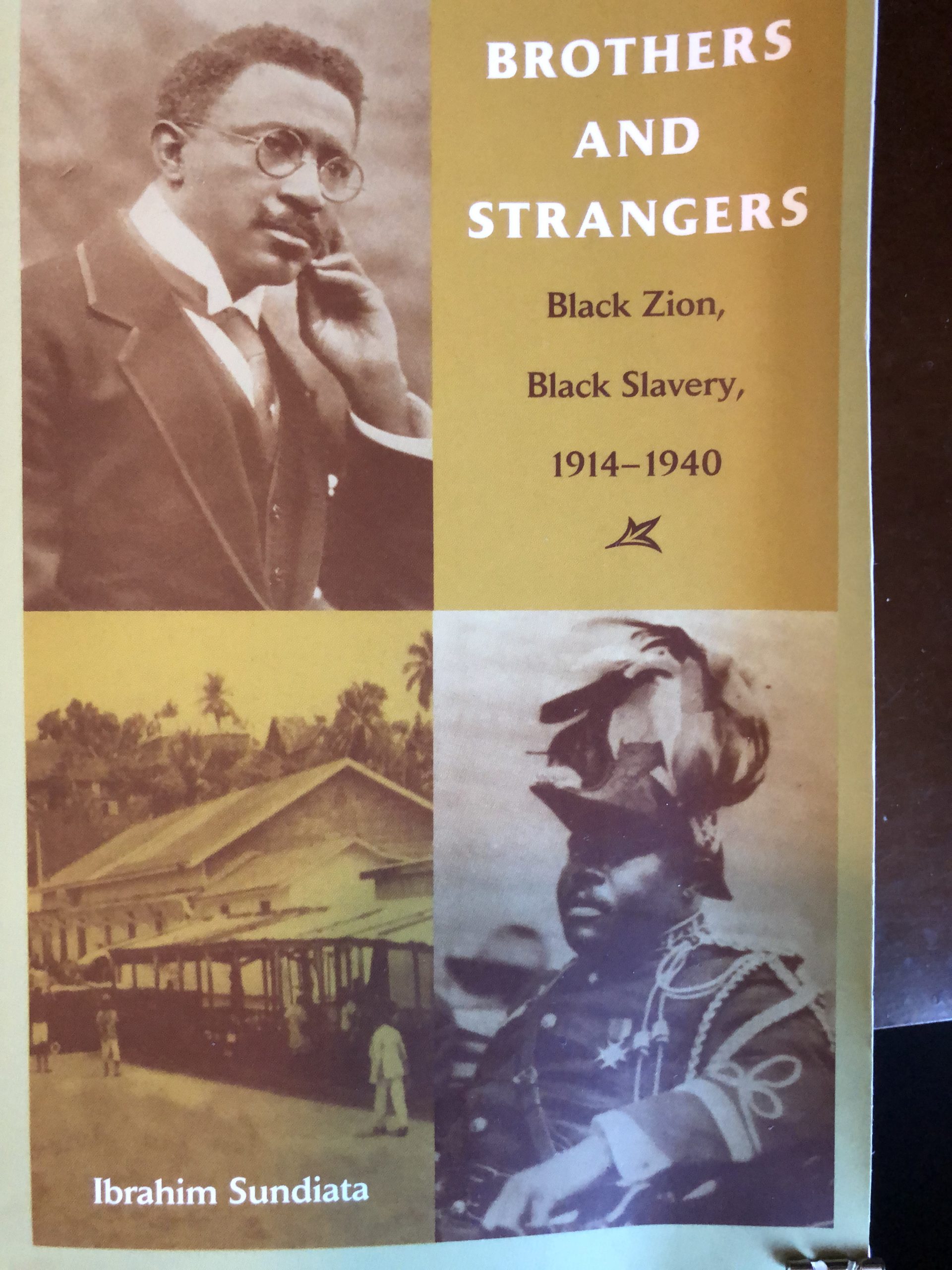
Brothers and Strangers: Black Zion, Black Slavery 1914-1940
Ibrahim K. Sundiata
In the aftermath of World War I, Marcus Garvey created the largest mass Black organization in the history of the United States. He urged that African-Americans “do -for-self” — open small factories and businesses. Some of the “Race” should return to the Mother Continent and contribute to development there. They would lead by example and establish trading links with the Black businesses established in North America. His proposal came at a time when a white American rubber company (Firestone) was planning to open plantations in Liberia. These plans became embrangled with the duel between Garvey’s Universal Negro Improvement Association and Du Bois’ National Association of the Advancement of Colored People. With the opposition of the NAACP, the State Department, the FBI and the slave-trading Liberian elite, Garveyism was rejected.
Garvey predicted that if a form of self-sufficiency were not gained, Blacks would continue begging for admission to white society even in the twenty-first century. They would continue to regale themselves and others with tales of their past oppressions, forgetting their past glories and their future possibilities. They would shake their chains at the white man without realizing how to truly cast them off. Now, one hundred years later, are we any better off, would be his question?
Where to Buy:

